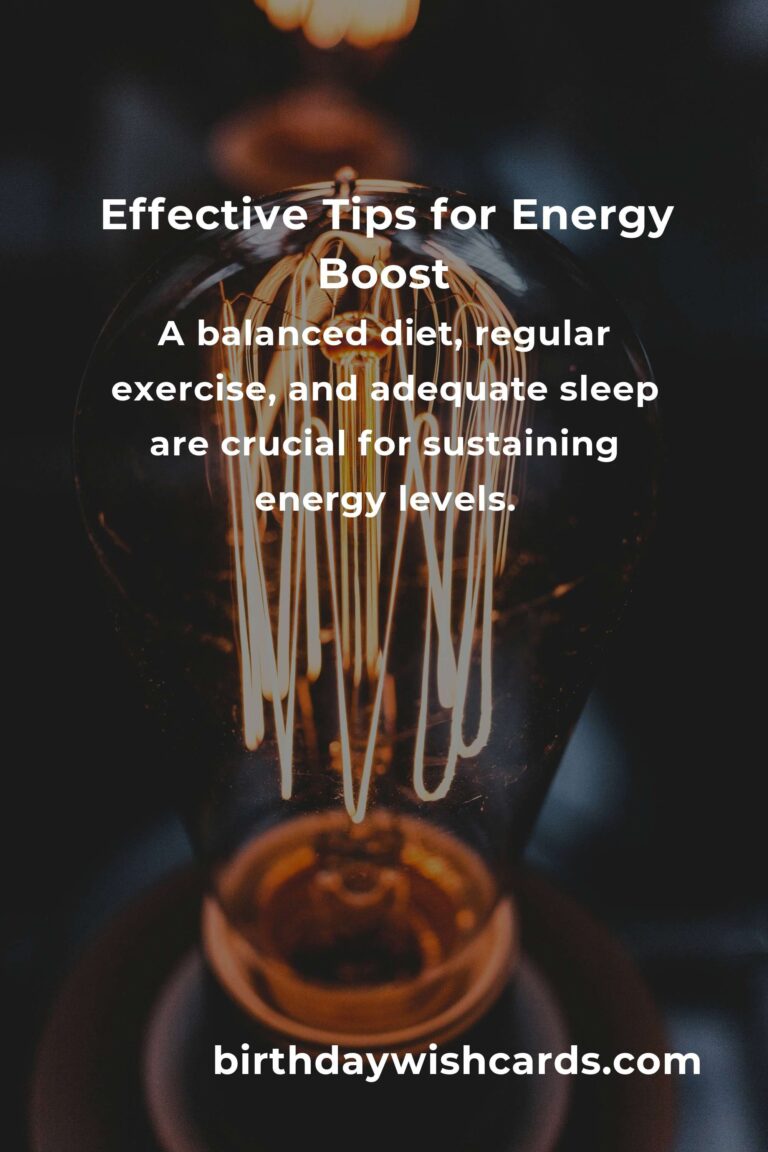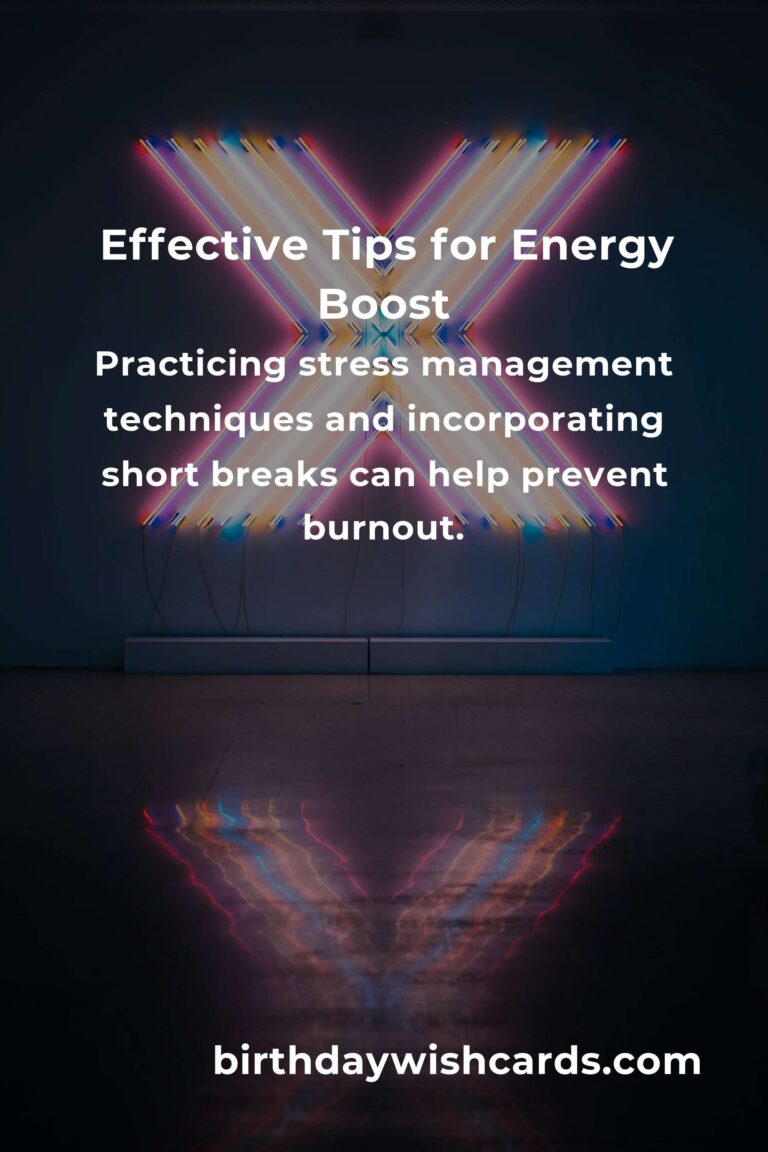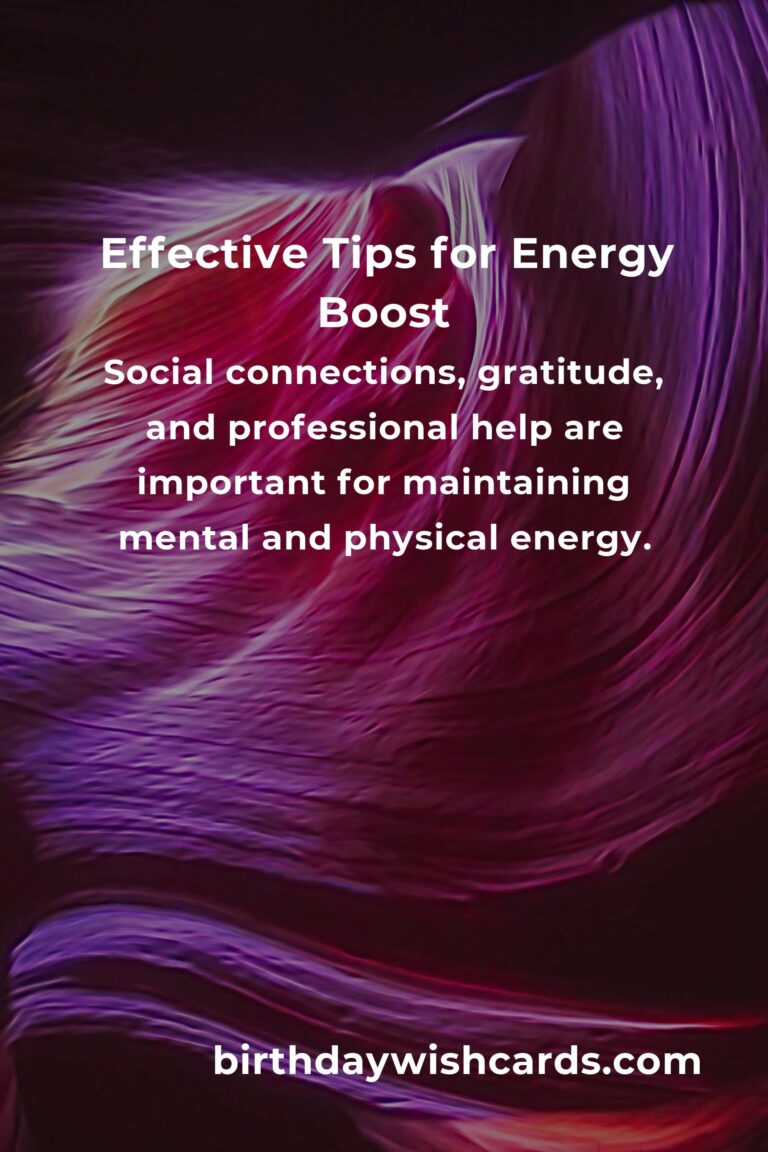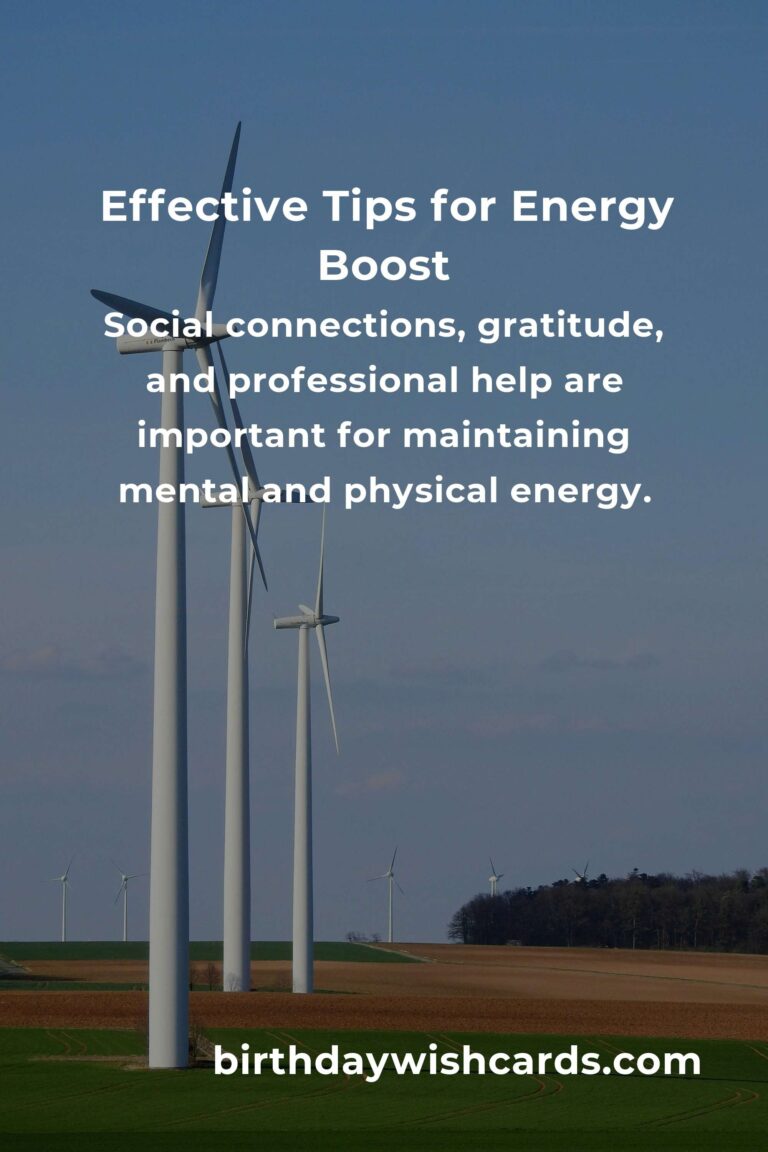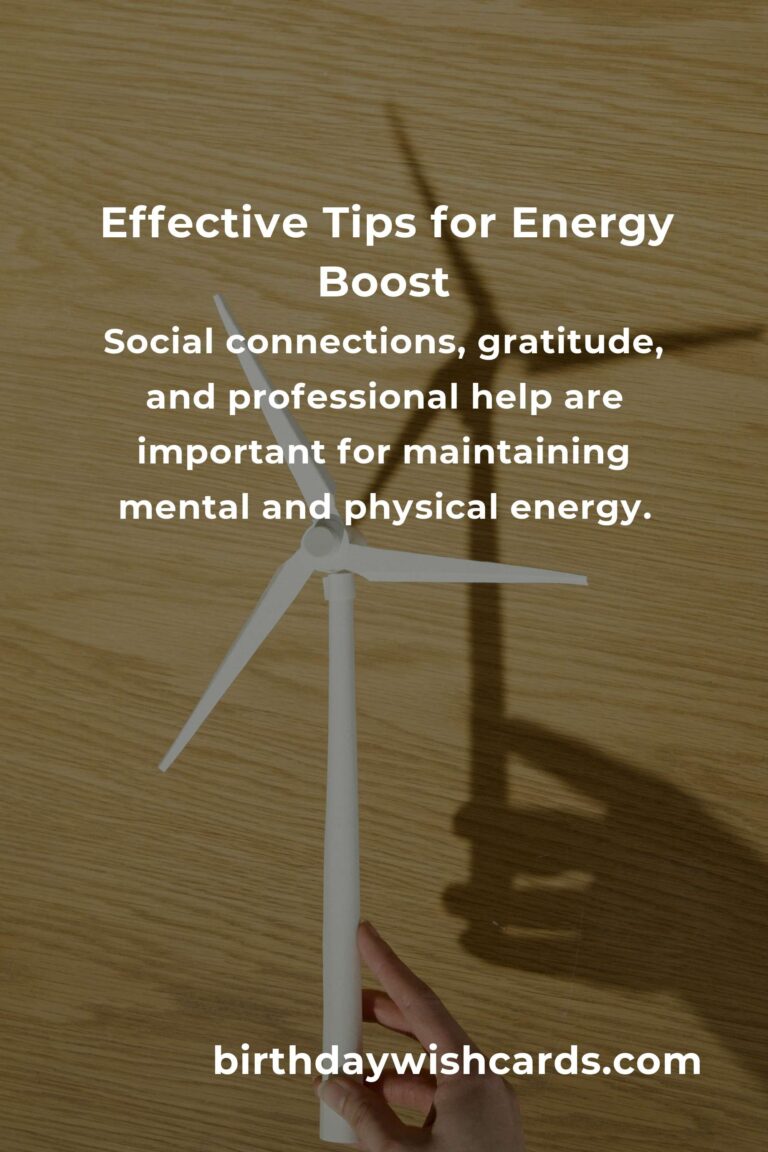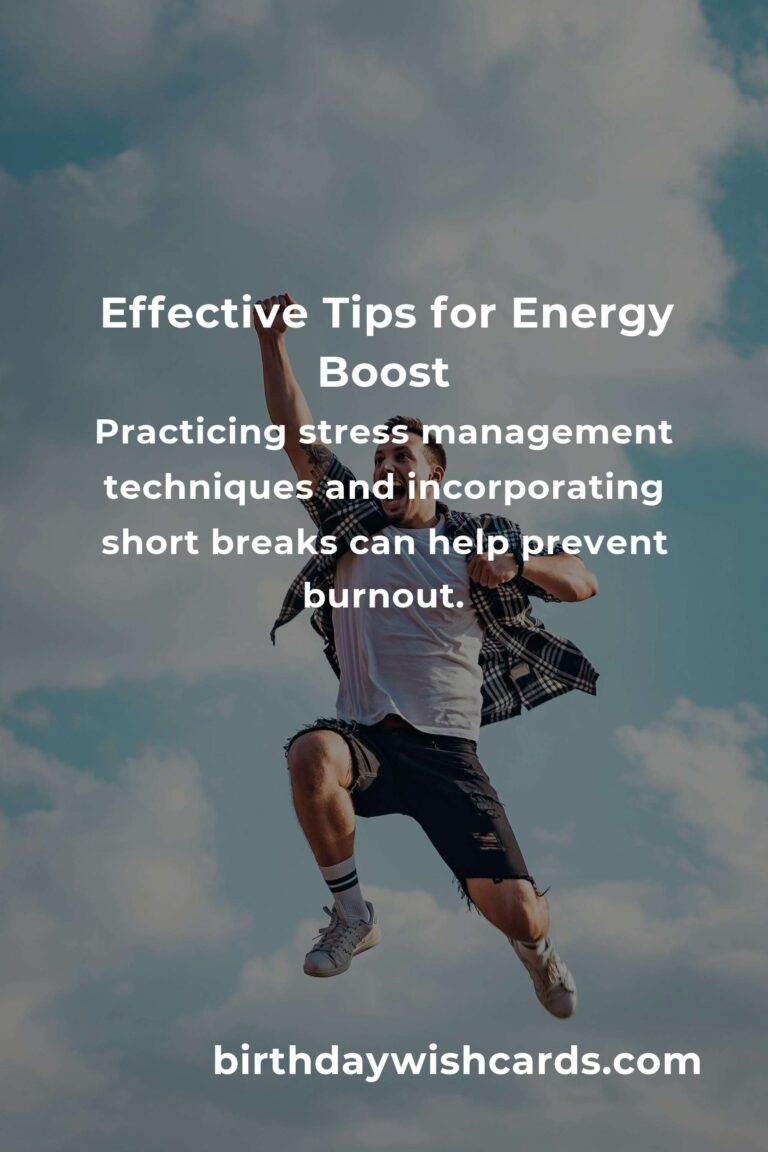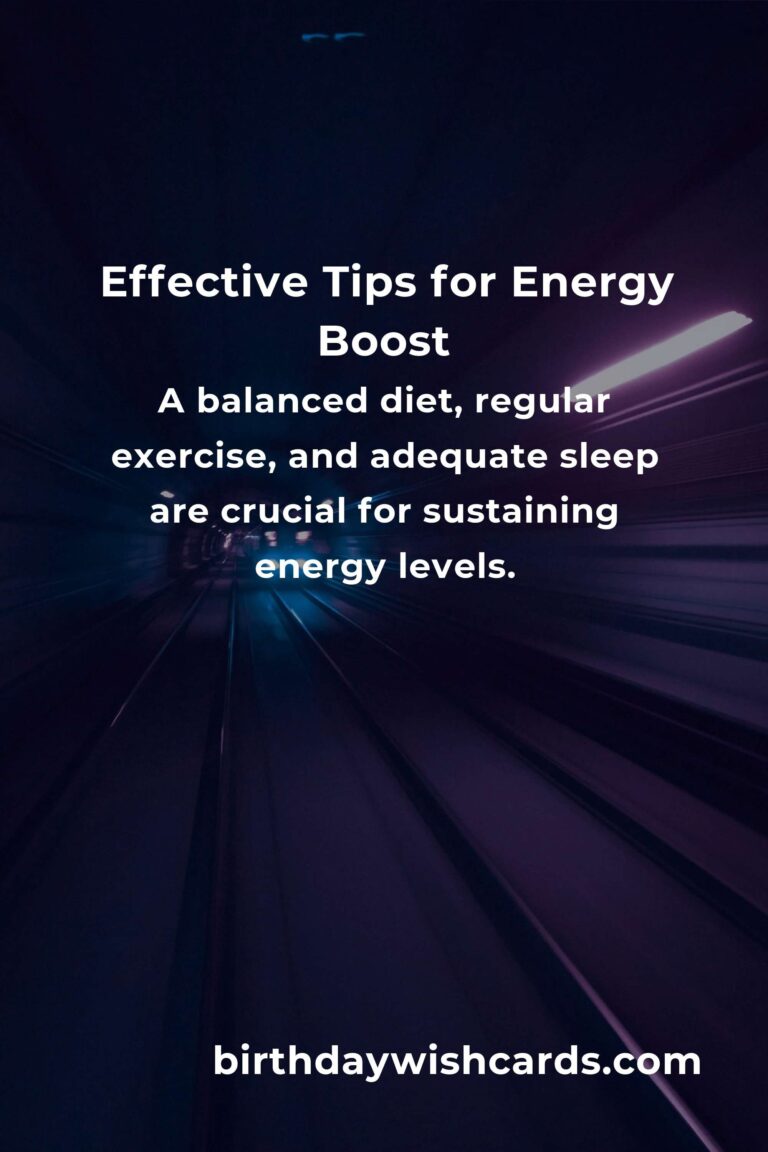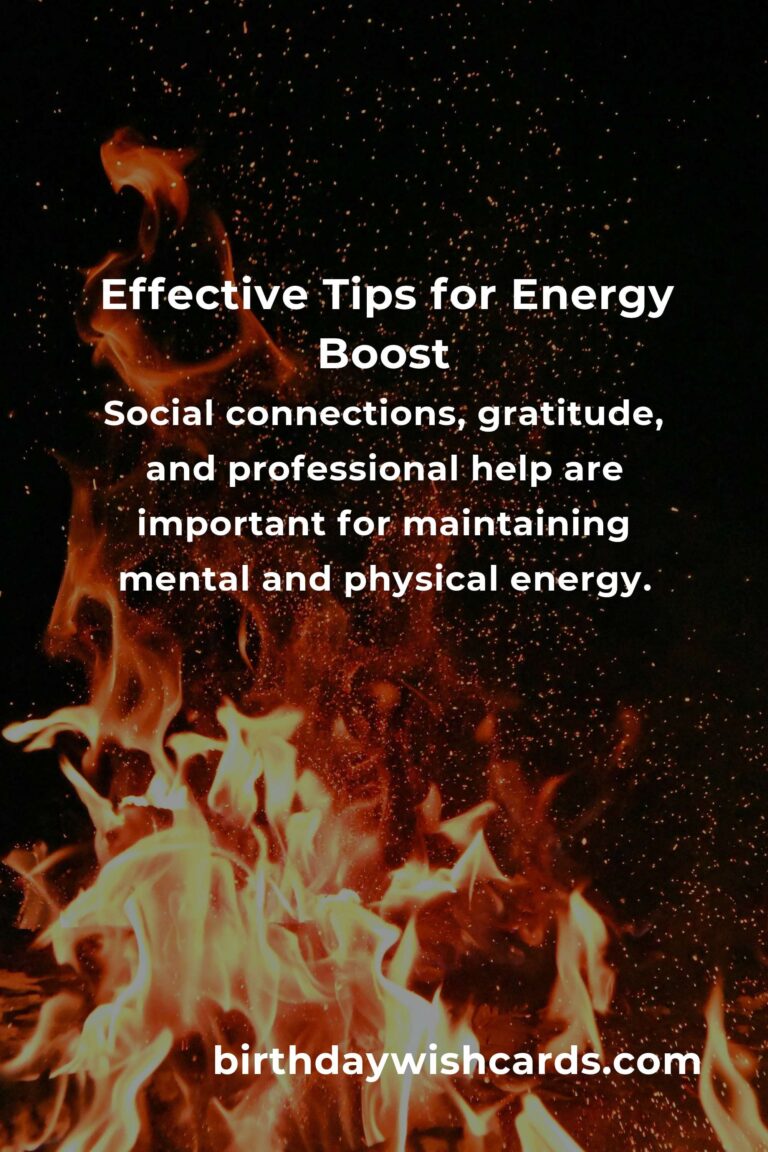
As we enter our 30s, life can become more demanding, and maintaining high energy levels can be challenging. However, with the right strategies, you can feel more energized and ready to tackle your daily tasks. Here are 24 tips to help you boost your energy levels and maintain vitality throughout your 30s.
1. Maintain a Balanced Diet
A balanced diet is crucial for maintaining energy levels. Ensure your meals contain a good mix of carbohydrates, proteins, and fats. Incorporate plenty of fruits and vegetables to provide essential vitamins and minerals.
2. Stay Hydrated
Dehydration can lead to fatigue. Make sure to drink plenty of water throughout the day. Aim for at least eight glasses to keep your body functioning properly.
3. Get Regular Exercise
Regular physical activity increases endorphins, boosts mood, and enhances energy levels. Aim for at least 30 minutes of exercise most days of the week.
4. Prioritize Sleep
Quality sleep is essential for energy restoration. Aim for 7-9 hours per night, and try to keep a consistent sleep schedule.
5. Manage Stress
Chronic stress can drain your energy. Practice stress-reducing techniques such as meditation, yoga, or deep breathing exercises.
6. Limit Caffeine and Sugar
While caffeine and sugar can give a temporary energy boost, they can lead to crashes. Limit their intake and opt for healthier energy sources like nuts and fruits.
7. Take Short Breaks
Incorporate short breaks into your daily routine to avoid burnout. A five-minute walk or stretching session can rejuvenate your mind and body.
8. Practice Mindfulness
Mindfulness practices can help you stay focused and energized. Spend a few minutes each day being present and aware of your surroundings.
9. Eat Smaller, Frequent Meals
Eating smaller, frequent meals can help maintain stable blood sugar levels and prevent energy dips.
10. Avoid Heavy Meals Before Bed
Avoid heavy meals right before bedtime as they can disrupt your sleep and leave you feeling sluggish in the morning.
11. Incorporate Omega-3 Fatty Acids
Omega-3s found in fish, flaxseeds, and walnuts can boost brain function and energy levels.
12. Take Supplements Wisely
Consult with a healthcare provider before taking supplements. Some, like vitamin D and B12, can improve energy if there are deficiencies.
13. Set Realistic Goals
Setting achievable goals can prevent overwhelm and keep you motivated.
14. Stay Socially Connected
Maintaining social connections can improve your mood and energy levels. Make time for friends and family.
15. Limit Alcohol Consumption
Alcohol can interfere with sleep and reduce energy levels, so consume it in moderation.
16. Practice Good Posture
Good posture can improve circulation and energy. Ensure your workspace is ergonomically friendly.
17. Get Some Sunlight
Exposure to natural light can improve mood and energy. Spend some time outdoors each day.
18. Laugh Often
Laughter increases oxygen intake and releases endorphins, boosting energy levels.
19. Listen to Music
Music can invigorate and motivate you, so create a playlist that energizes you.
20. Practice Gratitude
Gratitude practices can improve mood and energy. Take time each day to reflect on positive aspects of your life.
21. Avoid Negative Influences
Surround yourself with positive influences to maintain high energy levels and motivation.
22. Seek Professional Help if Needed
If you’re struggling with low energy levels, consider consulting a healthcare professional for personalized advice.
23. Incorporate Adaptogens
Herbs like ashwagandha and ginseng can support energy and stress management. Use them as directed.
24. Keep a Journal
Journaling can help you identify patterns in your energy levels and make necessary adjustments to your routine.
By incorporating these tips into your routine, you can enhance your energy levels and enjoy a more vibrant life in your 30s.
Maintaining high energy levels in your 30s can be challenging but is achievable with the right strategies.
A balanced diet, regular exercise, and adequate sleep are crucial for sustaining energy levels.
Practicing stress management techniques and incorporating short breaks can help prevent burnout.
Limiting caffeine and sugar, staying hydrated, and eating smaller, frequent meals can stabilize energy.
Social connections, gratitude, and professional help are important for maintaining mental and physical energy.
#EnergyLevels #HealthyLiving #Wellness


